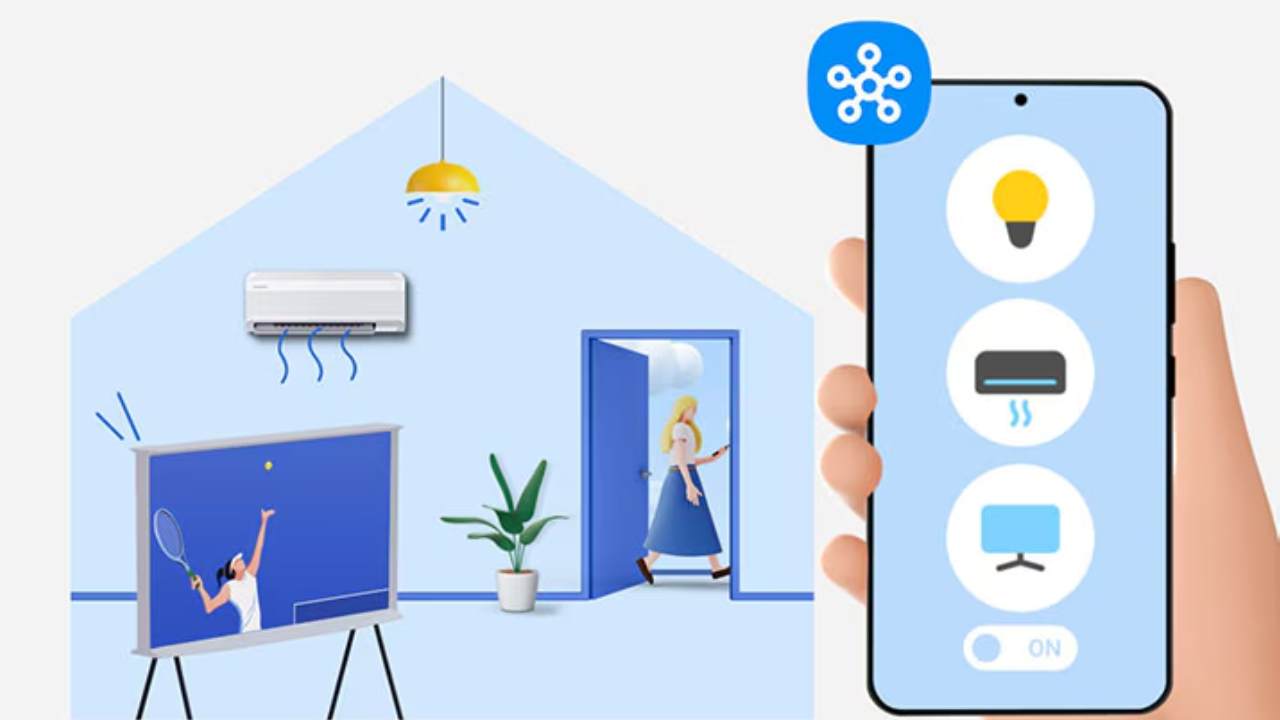
Samsung has announced plans to turn its SmartThings appliances into motion sensors.
With Home AI, Samsung will add ambient sensing to its SmartThings devices to learn your habits and automate activities.
During the Samsung Galaxy Unpacked event, Samsung announced plans to turn its SmartThings appliances into motion sensors. With a continued focus on ‘AI for All’, the SmartThings ecosystem will monitor and gather insights into users' daily habits and automate activities to create a more efficient smart home experience.
Samsung Galaxy Unpacked took place last week, and while the event was heavily focused on its new smartphone line-up, Samsung SmartThings users also got some exciting updates. During the event, Samsung announced its Home AI feature, and how it will add ambient sensing to its SmartThings devices and appliances.
For those new to the concept, ambient sensing is a type of technology that uses sensors to detect and gather information within a specific environment. For example, using ambient sensing in your home means your devices can monitor light, temperature, movement and other habits and adjust accordingly based on these factors.
With Home AI, Samsung plans for its SmartThings platform to monitor your daily habits and activities to better understand your needs. From there, SmartThings can adapt to your lifestyle and make changes to your surroundings so your smart home is more streamlined and you don’t have to rely on voice assistants or apps as much.

The SmartThings devices expected to act as motion sensors are its TVs, speakers and refrigerators, as these appliances already have a host of smart features. Acting as motion and sound sensors, these SmartThings devices can gather data and adjust to help you, for example, your TV can use ambient sensing to track your movements and tell you to stand up if you’ve been sitting for too long.
Alongside Home AI, Samsung has also announced a new version of its Map View which now uses generative AI to create a personalised 3D map of your home. Users can now take photos on your phone so SmartThings can better understand your rooms and make automations more personal and natural.
The concept of the SmartThings devices as sensors is definitely interesting, although I’m not completely convinced by it. While it’s handy to have devices around your house that know your routines, I wonder how invasive it might get and how often the devices will make adjustments that maybe aren’t needed.
One thing that will make users happy is the privacy controls as Home AI is stored locally on your SmartThings hub and network. Home AI is expected to roll out 2025 and potentially in 2026 so Samsung has plenty of time to work on these updates. For more details, see how to start a smart home with Samsung SmartThings.







